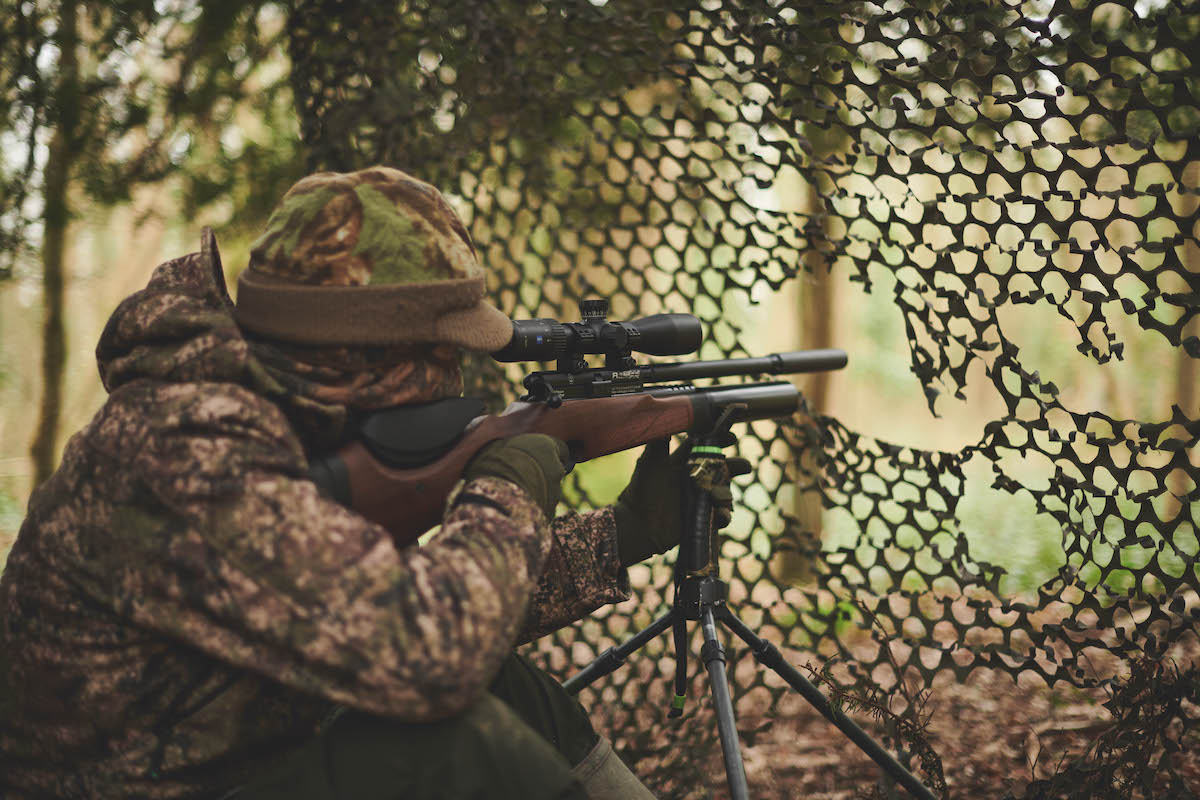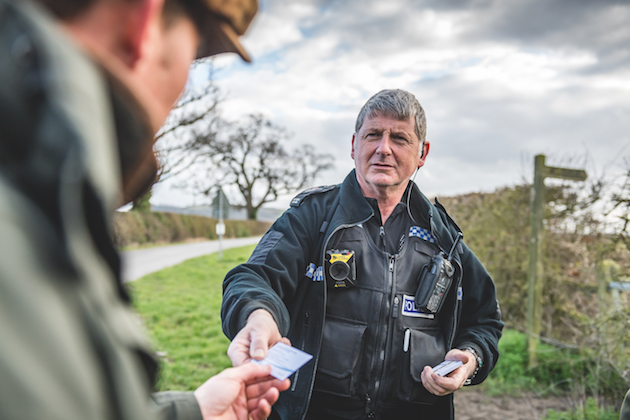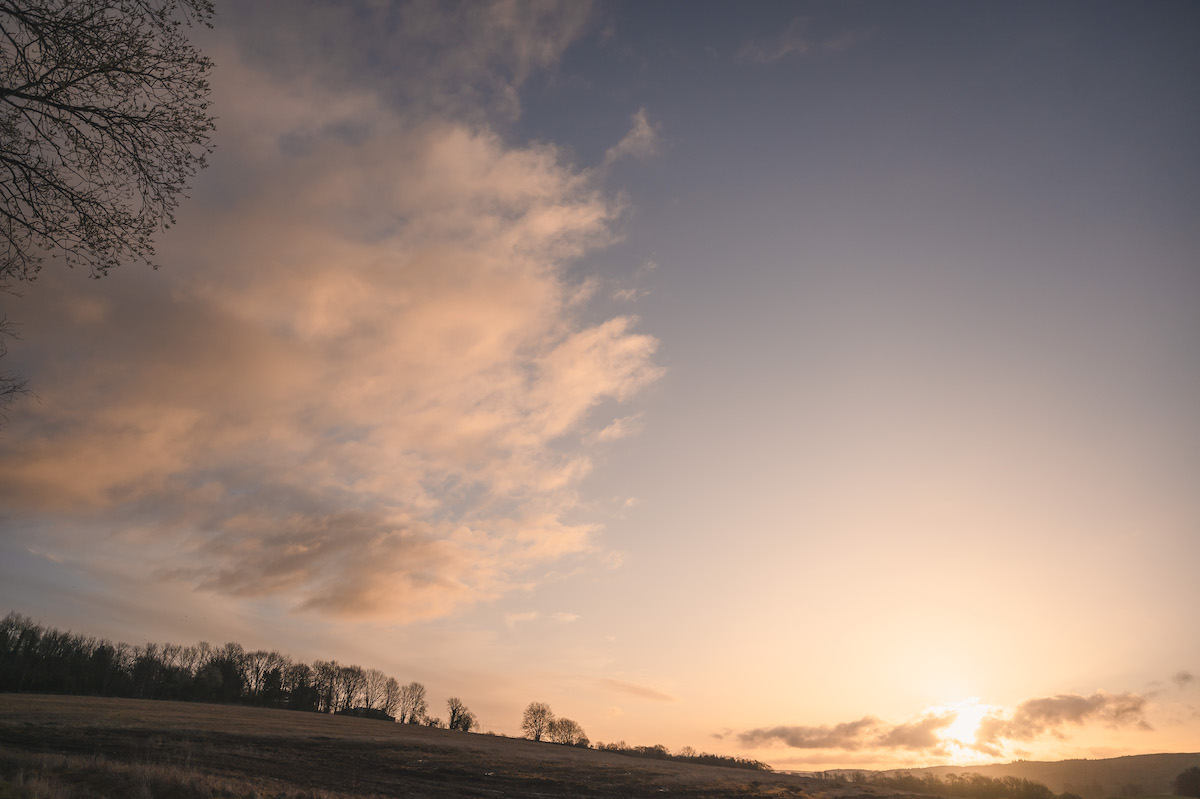All about accurate gun fit
If your gun doesn't fit properly, then you won't be able to point at the target accurately. Here's what you need to know to get it right.
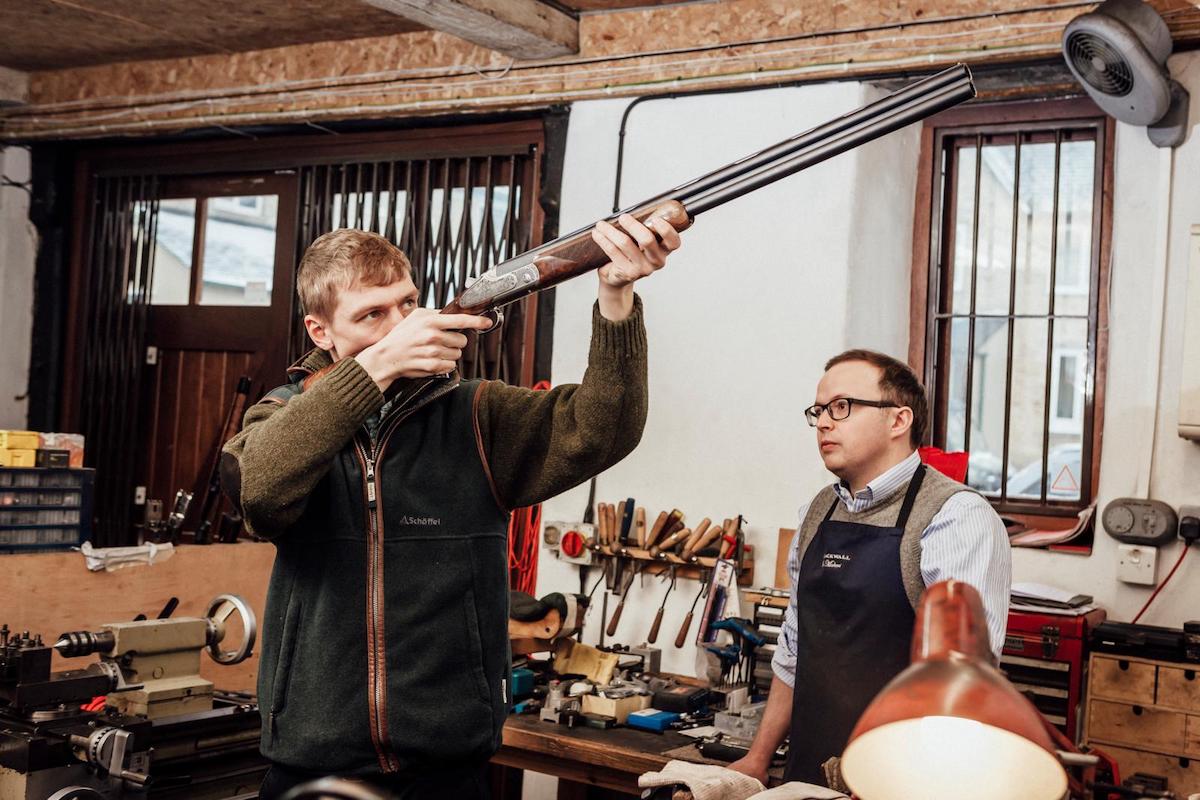
Checking gun fit with a gunsmith watching
If your gun fit is good then your shooting is more likely to be fluid and accurate.
If it’s wrong, then the gun won’t point exactly where you want it to and your shooting may look tight and ‘snatchy’. Furthermore a badly fitting gun may cause bruising under the shooter’s cheek, on the jawbone, shoulder and forearm. It can also cause injuries to the index finger from the trigger guard.
Off-peg-guns are intended to suit the average shooter with an average build and height. But we’re not all average. A taller person needs a gun with a longer stock and somebody shorter needs a shorter stock.
Reader problem
Q: “I try to mount my gun well but to get my head in the right place I have to hunch my shoulders and stand awkwardly. What is going wrong?
A: Assuming your stance is correct, it sounds as if your gun dimensions are not right for you. Many shooters fit themselves to their guns rather than having the gun fitted to them. This can work for short periods but after a while the effort you make to fit with your gun will fade and targets will be missed. First, calculate what length of pull (measurement from trigger to centre of butt) works best for you, then look at the comb height. Book a session with a coach and see what adjustments can be made to make your gun to make your mount less awkward. Alternatively, try to solve it yourself, if possible, by mounting some friends’ guns to see what feels right. (Tony Bracci )
A quick check to see if your gun fits you
Take a look through your unloaded gun. What can you see? Which of the below match to your view?

Here’s the image showing the shooter’s view and what you should see
If the shooter’s eye is too high, the gun will shoot high and if the eye is too low then the non-shooting eye will take over and the gun will not shoot where it’s intended or the shooter’s head lift, which destroys the relationship of the eye to the gun.
Gunsmith Bill Elderkin advises: “If at home, the easiest way to check if the gun fits is to mount the shotgun to your own dominant eye with a mirror facing you. Remember to look at your dominant eye and not think about the shotgun. Close your other eye and see where your dominant eye is looking.”

Here gun fit is wrong, causing the shooter to lean back
Above we can see a young shooter struggling with a big, heavy gun that’s way too big and long for him. The gun is causing him to lean back to counter the weight and with a stock that’s also too long. The consequence is defensive shooting, fatigue and he’s probably missing a lot.

Here gun fit is correct with the shooter in a good position
Now the shooter has switched to a smaller, lighter gun with a stock that’s the correct length for him. With his gun fit correct, he now shoots more confidently and hits more.
How to correct the fit of your gun
If your existing gun is a problem then get in touch with a good local shooting instructor or gunsmith who will make alterations and adjustments to create a good fit – and improve your shooting access.
There are all sorts of items available to address these issues, such as simple slip-on butt extensions in leather or rubber, and temporary comb raisers, as well as professionally fitted adjustable combs. However if you’re looking at shortening the stock or changing the cast then we recommend using a professional gunsmith for this.
Common reasons for poor gun fit
- Length of pull: Too short – this can cause a shooter to develop a cramped style and perceive more recoil. The gun may also have a more lively and uncontrollable feel to it.
- Too long: The gun is going to feel too big and beyond a comfortable reach. Due to the slope of the comb, the shooter is likely to get a poor view along the rib, which, in turn, may cause the other eye to take over or the head to lift for the shooter to see the target.
- Comb height: A comb that’s too low, thus causing a poor view along the rib, can cause head lifting for the shooter to see the target. Or, in the case of a right-handed person, using both eyes, the left eye can over dominance of the view.
- Cast-off or cast-on: The degree to which the stock is off set for the handedness of the shooter. In the case of a right-handed shooter the stock is bent away from the right cheek – “cast-off”. In the case of a left-handed person, it is bent away from the left cheek – “cast-on”.
Gunsmith Bill Elderkin comments: “The most important measurement is cast, so that your eye is looking straight down the barrel. Some customers like to see more barrel, others less, so it’s down to the individual. Length is important but not as important as people think – it depends where the customer’s leading hand is placed on the fore-end. It’s about finding that happy medium of where you need to be. One of the things customers tell us is the gun is shooting ‘high’, and they often think their stock is too short, but length of the stock concerns where the butt hits your shoulder, and the comb meets your cheek. What they’re really talking about is drop.”
And when you’ve had your gun fitted?
Go and practise on the clay ground and also concentrate on dry-mounting the gun at home
What’s a try gun?
A try gun is a useful tool and is used to assess the right gun fit for you.
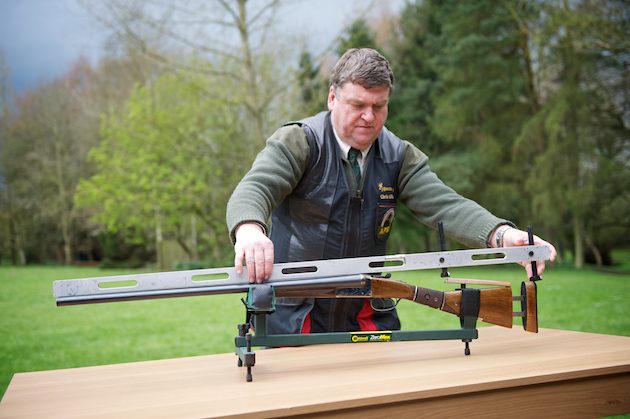
Professional gun fitting with a try gun
With the adjustment figures noted the gunsmith will alter the cast, stock length, trigger and rim on your own gun to suit you.
A skilled gun fitter will use a try-gun to great effect and achieve an excellent result. Some fitters who are experienced shotgun coaches can even make accurate assessments of what a gun needs without the need of a try-gun. They just watch how somebody goes about shooting.

Ensuring that gun fit is right for a novice woman Gun
A word about gun mount
The full benefit in using a gun that fits precisely can only be achieved when a shooter has a clear understanding of his or her own shooting technique and is able to mount the gun properly and consistently each and every shot.
In addition your gun fit problems may actually be an issue with your gun mount and shooting technique. So it’s worth asking an instructor to assess your shooting style before you make any changes to your gun.

A coach will help you with your gun mount
Useful gun fit vocabulary
Cast
Cast off: This is the degree to which the shotgun’s stock is offset from its centre point and to the right. The aim is to allow the right-handed user’s line of sight to be directly down the centre of the rib from the breech to the bead at the muzzle end. It should also feel comfortable in the right shoulder pocket. For a left-handed shot, the reverse is known as ‘cast on’.
Toe, centre and heel
Toe: This refers to the bottom rear section of the gunstock, and is at the opposite end to the “heel” with the “centre” in between. A trick for remembering which is which is to set an unloaded shotgun on its butt alongside your feet with the trigger guard facing away – the toe of the stock and the toes on your feet will be side by side.
Length
Also known as “pull”, length is the measurement from the centre of the trigger to the centre of the butt.
Drop
Drop is the difference in height between the top of the stock comb and the rear of the rib, and it is measured at the comb and the heel. A gun with less drop normally shoots higher, and a gun with more drop shoots lower. As a general rule the measurement is correct when the gun is mounted and the user is able to see the bead and a little of the rib from the breech end.

Assessing gun fit
Do I really need to have my gun fitted?
Q: Is there really any need to have a gun fitted? My factory-stocked Beretta is perfect in every respect. A couple of friends, though, are forever tinkering with their guns, with mixed results. What are your thoughts on this?
A: A lot of folk are fortunate in that “standard” stock measurements are a suitable compromise but others, however, aren’t quite so lucky.
People come in all shapes and sizes and, depending on individual physique, some change might be needed to enable them to get the gun to shoot where they’re looking
However, fitting only pays if a shooter is able mount his gun properly to the face and shoulder, automatically, shot after shot. If mounting isn’t second nature, or you continually change stance when addressing a target, then the value of any gun fitting will be compromised.
Gun fit summary
- If your shotgun fitting is right you will be a consistent shooter because you will be able to mount the gun in the same place every time.
- A well-fitted shotgun is crucial to making sure that you perform to the best of your ability when out in the field.
- It will also be a lot more comfortable to shoot with.
- A lot will depend on your body shape, eye dominance, whether you’re left or right handed and whether you’re male or female.
- A good fitter will be experienced and know if your gun needs to be restocked or altered.
- An expert Gun can get away with a gun that fits indifferently. Everybody else needs to ensure that their fitting is as good as it can be!
This article was originally published in 2016 and has been updated.

